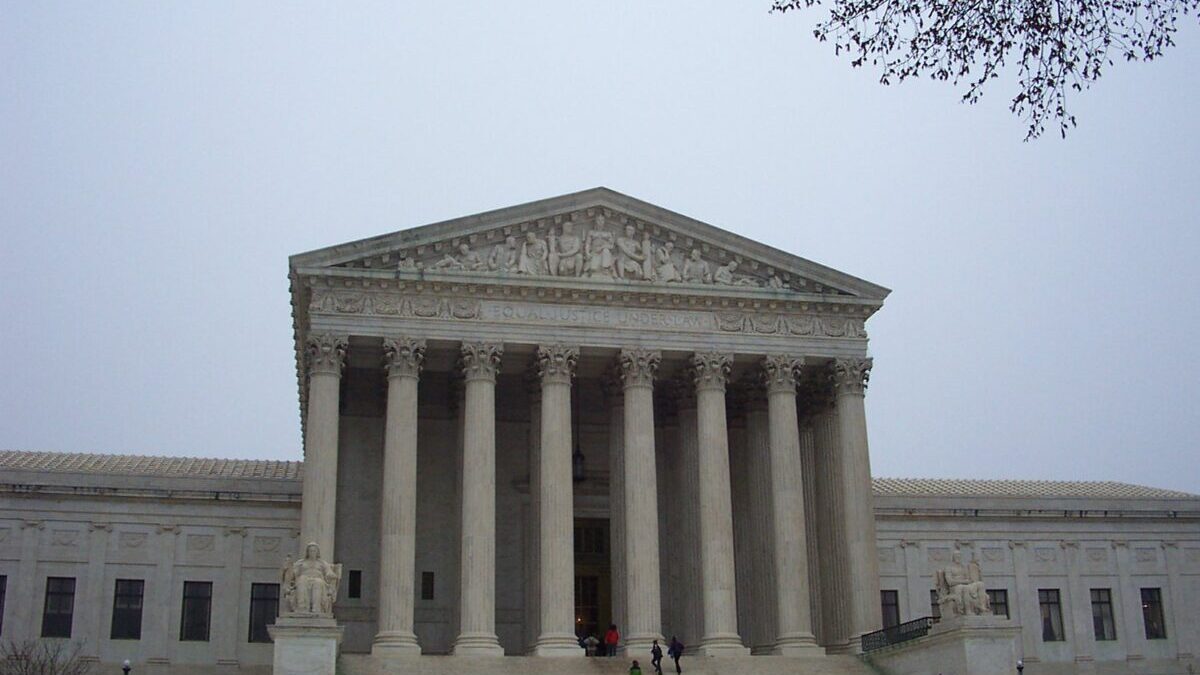
An attorney arguing in favor of government censorship at the Supreme Court Monday claimed federal emergencies excused First Amendment violations.
Justice Samuel Alito asked U.S. Principal Deputy Solicitor General Brian Fletcher whether the administration believed the print media regarded themselves as “being on the same team as the federal government.” The question came as Alito pressed Fletcher on the federal government treating online platforms as “subordinates” when officials demanded overt censorship.
“Potentially in the context of an effort to get Americans vaccinated during a once-in-a-lifetime pandemic,” Fletcher said.
It doesn’t change the First Amendment principles, but it’s relevant to how they apply here. And I think it’s important to understand that at this time, this was a time when thousands of Americans were still dying every week, and there was a hope that getting everyone vaccinated could stop the pandemic, and there was a concern that Americans were getting their news about the vaccine from the platforms and the platforms were promoting, not just posting but promoting bad information.
Alito pointed out that Americans receive their news from print, broadcast, and cable media and that publishers and producers of these mediums do not face the same pressure campaigns from federal officials to manipulate their coverage as online platforms did to alter algorithms. “It struck me as, wow, this is not what I understand the relationship to be.”
Federalist Senior Legal Correspondent Margot Cleveland called the government’s response “horrible” for three reasons. “1) because an emergency doesn’t trump 1st amendment,” Cleveland wrote on X, adding censorship also took place related to elections and Hunter Biden.
Federalist Executive Editor Joy Pullmann reported last summer that “the Cybersecurity and Infrastructure Security Agency, a federal agency, set up a private entity to ban and throttle election-related online speech Democrats dislike.”
“Much of the information choked by this algorithmic censorship operation is true, such as the legitimacy of Hunter Biden’s laptop,” Pullmann wrote.
The federal government also sought to suppress information during the 2020 election implicating the Democrats’ presidential nominee in his son’s potentially criminal overseas business schemes. The D.C. censorship regime escalated with the election of President Joe Biden, whose administration’s unprecedented control of the digital public square is at the center of the forthcoming Murthy v. Missouri Supreme Court case.
Moments later in Monday’s hearing, Biden-appointed Justice Ketanji Brown Jackson asked if the government conceded whether platforms were coerced into speech censorship.
“I’m interested in your view that the context doesn’t change the First Amendment principles,” Brown said. “I understood our First Amendment jurisprudence to require heightened scrutiny of government restrictions of speech but not necessarily a total prohibition when you’re talking about a compelling interest of the government to ensure, for example, that the public has accurate information in the context of a once-in-a-lifetime pandemic.”
Jonathan Turley, a George Washington University law professor and frequent Fox News legal analyst, called the question on X “chilling for free speech advocates.”









